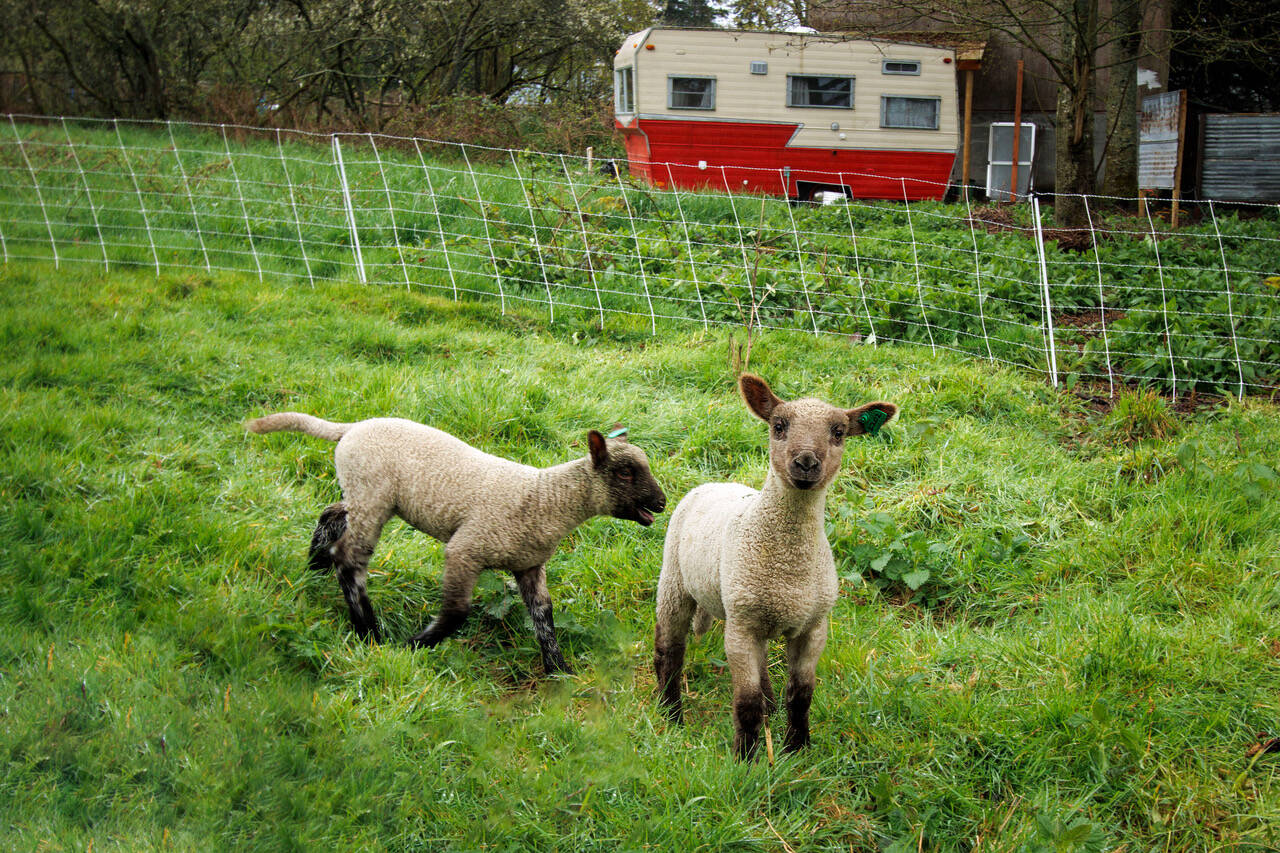An upcoming conversation series will explore regenerative agriculture and the role livestock plays within the food system.
Called “Dishing up the Dirt,” the talks take place from 5:30 to 7 p.m. on Feb. 9 and March 9 in the living room of the Feed & Seed house at the Organic Farm School on South Whidbey. Kevin Dunham, a farmer who lives in the Bayview area, will help guide these conversations with his wealth of experience and research on the subject.
The events are open to the public and free, although donations are encouraged. Because of limited space, RSVPs must be made in advance by emailing judy@organicfarmschool.org.
Judy Feldman, executive director of the Organic Farm School, said 2023 seemed like an opportune time to bring back “Dishing up the Dirt,” which the school originally hosted before the COVID-19 pandemic.
Besides offering in-depth instruction for people wanting to become farmers, Feldman explained, another goal of the Organic Farm School is to take an equally deep dive into education for community members with these guided discussions.
“They’re seriously intended to be conversations. Wherever we leave off, we’ll pick back up again,” she said. “We’re not trying to preach to people or talk down to people. This is an engaged conversation.”
In the past, Dunham has taught classes at the Organic Farm School and helped students learn how to harvest and process chickens, an important component of the school’s curriculum. He’s also written blog posts for the school on the topics of livestock and regenerative agriculture.
“Dishing up the Dirt” will center on defining regenerative agriculture, a practice used right here on Whidbey Island. The talks would be remiss if they didn’t also address how livestock fits into the local food system.
“One of the easiest places to have an impact is to draw attention to how we make decisions around what we eat,” Feldman said.
On Dunham’s farm, sheep, pigs and chickens that he raises as livestock contribute to the health of the soil.
“My main goal as a farmer is to grow healthy food and take care of our land and sustain it into the future,” he said. “I feel like on our farm, animals are an important part of that and the way we’ve been managing them has improved our land over the past five years.”
Dunham said he intends to bring up issues that people often hear about in the mainstream narrative, such as methane, water and land use. He acknowledged that these can be complex and nuanced topics to delve into.
“It’s definitely a lot more complicated than most articles and sources tend to get into,” he said.
The point of the discussions is not to convince someone to start or stop eating meat, but rather to challenge some of the messaging out there that diet-wise, animals are bad and plants are good.
Dunham said there are a lot of misconceptions about eating meat and definite marketing against it. Feldman pointed out that the idea of a diet conscious of climate change, referred to as “climate diet,” supports eating plant-based food but doesn’t take into account how much space vegetables need to grow.
“Whidbey Island is much better at growing livestock than it is at growing vegetables. When you look at most of the range land in the U.S., it’s not suited to growing vegetables,” Feldman said, adding that part of the conversation should be about how anyone raising livestock needs to consider how to do so in ethically and environmentally sound ways.
She encouraged everyone attending “Dishing up the Dirt” to keep an open mind and come prepared for a lively discussion.



